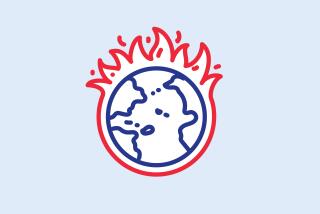Cigarette Tax: Yes on 99
- Share via
Smoking, says Surgeon General C. Everett Koop, prematurely kills 300,000 people each year in the United States. That’s more Americans than died in battle in all of World War II. It’s also more deaths than can be attributed to alcohol, AIDS, fires, homicides, suicides, heroin and cocaine combined. For tobacco companies, these appalling figures help define the dimensions of a shrinking market; dead smokers don’t buy any more cigarettes. So just to attempt to maintain the existing demand for cigarettes requires, bluntly, that hundreds of thousands of new nicotine addicts be created each year. What can be done to retard the seduction of new victims? One approach known to be effective in discouraging first-time smokers is to make tobacco products more expensive. Proposition 99, by raising cigarette taxes 25 cents a pack, could be a valuable deterrent to smoking.
But trying to discourage smoking is not the only or even the major purpose of Proposition 99. A federal study places the social costs of smoking at $65 billion a year, counting health costs associated with smoking, missed work days, lost productivity, smoking-related fires and the like. Proposition 99 would generate about $600 million annually in revenue. Appropriately, that money would be earmarked for health care, public-health education and other socially beneficial purposes related to smoking-caused problems.
Here is how revenues from Proposition 99 would be allocated:
Education to discourage smoking and to inform about the health dangers of tobacco, drug abuse and AIDS would get about $120 million in funding.
Hospital and physician costs associated with indigent health care would get a total of about $270 million. Los Angeles County alone could expect to receive about $46 million next year, money that is vitally needed to ensure the continued operation of certain hospitals and clinics.
About $30 million a year would go to health-research grants. A similar amount would go to improve state and local parks. What’s the connection between tobacco and parks? Smoking-caused fires destroy a lot of parkland each year.
Finally, a reserve fund of $150 million would be established, much of which could be channeled to counties like Los Angeles and Orange where indigent demand for health services is especially great.
Tobacco taxes in California haven’t been increased for more than 20 years. In 1967 the tax went to a dime, representing about one-third the price of a pack of cigarettes. Adding another quarter to the tax, for a total of 35 cents, would still leave the tax share of the average price of a pack of cigarettes at less than one-third. That is equitable. More to the point, here is a tax whose specific social value is both clear and urgent. We recommend a Yes vote on Proposition 99.
More to Read
Sign up for Essential California
The most important California stories and recommendations in your inbox every morning.
You may occasionally receive promotional content from the Los Angeles Times.













